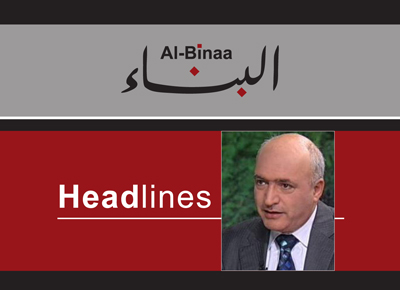Berri: Progress Underway, Atmosphere Positive, but the Outcome Is What Matters; Larijani Conveys Khamenei’s Support / Battles in Shamaa, Talouseh, and Ainata Inflict Heavy Losses on the Occupation: Negotiation Under Fire
Scholz’s Hour-Long Call With Putin: Negotiations Over Ukraine Begin Ahead of Trump’s Inauguration

November 16, 2024
The political editor wrote
The contours of a new international political landscape began to emerge from the Ukraine conflict, coinciding with Donald Trump’s election as U.S. president. Trump’s ascent marked the failure of the Democratic Party’s strategy of waging war to defend American globalisation – a campaign that ultimately faltered despite the West’s full mobilisation against Russia. Trump’s presidency also signalled a pivot, focusing on confronting China’s economic rise, bolstering wars waged by the occupying entity, and pursuing a pragmatic understanding with Russian President Vladimir Putin, deemed less problematic than other global conflicts.
Fearing that Trump’s overtures to Russia might appear as concessions born of defeat, German Chancellor Olaf Scholz made a remarkable move by initiating a one-hour phone call with Putin – their first such exchange in two years. According to the Kremlin, the conversation featured a detailed and candid discussion about the situation in Ukraine. This diplomatic initiative, occurring just before Trump’s inauguration, highlighted the West’s shifting strategies in response to the Ukraine crisis.
In Lebanon, attention turned to a U.S.-backed ceasefire proposal delivered by Ambassador Lisa Johnson to Parliament Speaker Nabih Berri. The proposal coincided with a visit from former Iranian Parliament Speaker Ali Larijani, who conveyed a message of support from Supreme Leader Ayatollah Khamenei. Speaking to Al Mayadeen, Larijani described the proposal as containing elements that could lead to a resolution, provided that neither Washington nor the occupying entity sought to undermine it.
After his meeting with Larijani, Speaker Berri categorically rejected any provisions permitting Israeli military movement within Lebanese territory, emphasising that such terms were unacceptable and not even open for discussion. He also dismissed rumours of NATO or other foreign forces being deployed in Lebanon as part of the agreement. Berri revealed that the proposal included a clause, deemed “unacceptable” by Lebanon, to establish a supervisory committee composed of Western nations to oversee the implementation of Resolution 1701. Instead, he called for reinforcing the existing UNIFIL mechanism already tasked with monitoring compliance since the 2006 war.
Berri maintained an optimistic tone, stating, “Progress is being made, and the atmosphere is positive, but the outcome is what matters.” He added that U.S. envoy Amos Hochstein’s visit to Lebanon depended on the progress of negotiations.
Meanwhile, the dynamics of negotiation under fire were shifting against the occupying entity. Resistance forces inflicted heavy losses on the occupation in fierce battles at Talouseh, Maroun al-Ras, and Ainata, forcing repeated retreats despite heavy bombardment. Rockets from the resistance struck Tel Aviv once again, demonstrating their sustained operational capacity. This reversal, both on the battlefield and in public perception, undermined the Israeli strategy of leveraging military pressure to dictate terms, turning the notion of “negotiation under fire” into a self-defeating gamble.



